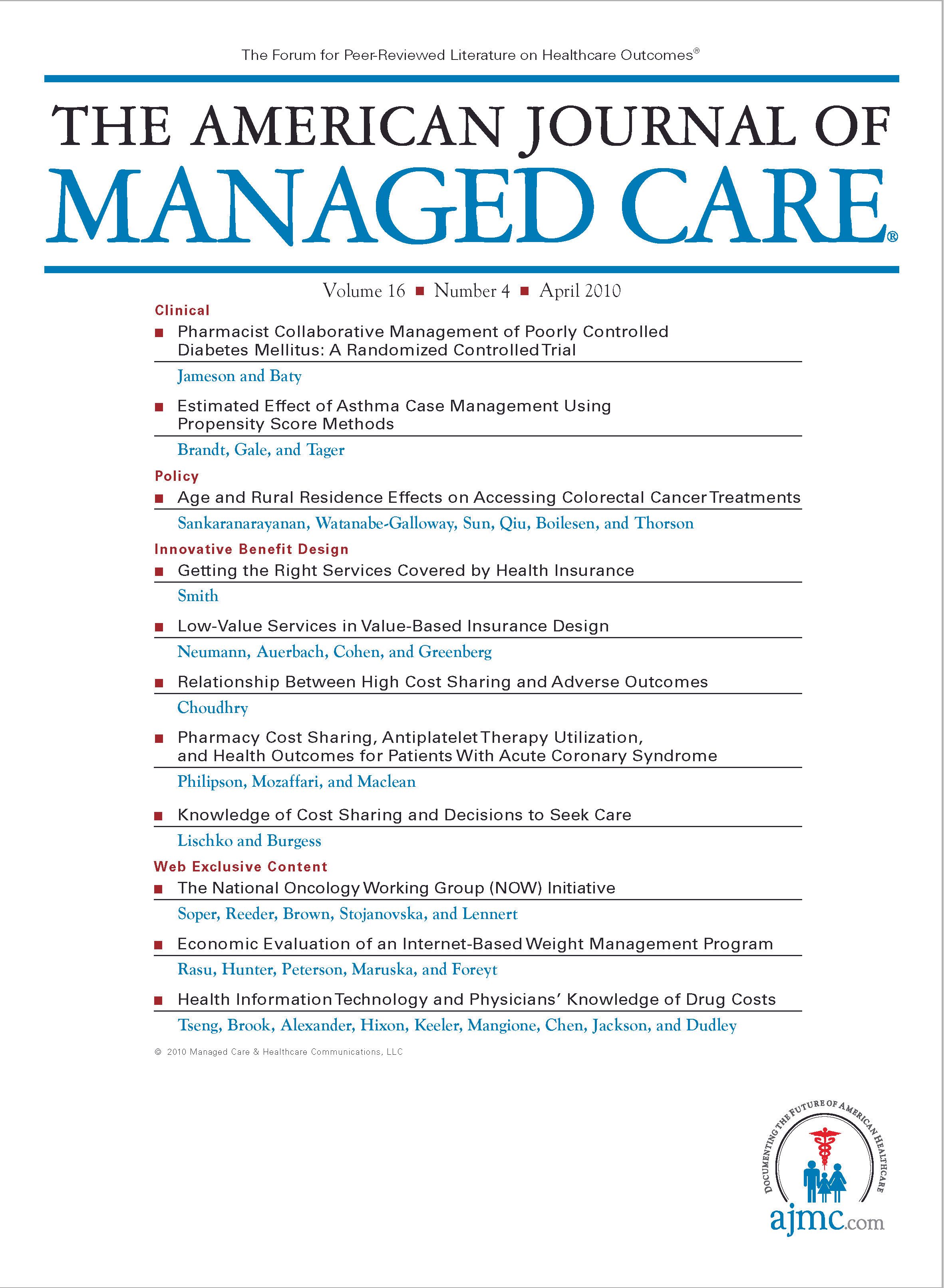- Center on Health Equity & Access
- Clinical
- Health Care Cost
- Health Care Delivery
- Insurance
- Policy
- Technology
- Value-Based Care
Age and Rural Residence Effects on Accessing Colorectal Cancer Treatments: A Registry Study
Older patients with colorectal cancer were less likely to undergo surgery, radiation, and chemotherapy; rural patients with colon cancer were less likely to undergo chemotherapy.
Objectives: To test the hypotheses that older patients with colorectal cancer (CRC) and rural patients are less likely to undergo surgery, radiation, and chemotherapy.
Study Design: Retrospective study.
Methods: A total of 6561 patients with CRC between January 1998 and December 2003 were identified by incident International Classification of Diseases for Oncology codes from the Nebraska Cancer Registry. In multivariate logistic regression analyses, we studied the association of age and residence county (rural vs urban and micropolitan) with each of 3 CRC treatments by anatomic site.
Results: After adjusting for patient demographics, insurance payer, ratio of providers to population, and cancer stage, patients with colon cancer living in micropolitan counties were more likely to receive chemotherapy than those living in rural counties (P <.001). Compared with patients aged 19 to 64 years, patients with colon cancer 85 years and older (P <.001) and patients with rectal cancer 75 years and older (P <.05) were less likely to undergo surgery. Patients with CRC 75 years and older were less likely to receive radiation, and patients with colon cancer 65 years and older and patients with rectal cancer 75 years and older were less likely to receive chemotherapy (P <.001 for both).
Conclusions: In Nebraska, older patients with CRC were less likely to undergo surgery, radiation, and chemotherapy. Patients with colon cancer in rural counties were less likely to undergo chemotherapy than those in micropolitan counties. Decision makers need to consider issues of age and rural residence in patient access to CRC treatments.
(Am J Manag Care. 2010;16(4):265-273)

HEDIS Glycemic Goal Achieved Using Control-IQ Technology
December 22nd 2025A greater proportion of patients with type 1 diabetes who used automated insulin delivery systems vs multiple daily injections achieved the Healthcare Effectiveness Data and Information Set (HEDIS) glycemic measure.
Read More
Linking Data to Determine Risk for 30-Day Readmissions in Dementia
December 22nd 2025This study found that certain characteristics in linked electronic health record data across episodes of care can help identify patients with Alzheimer disease and related dementias at high risk of 30-day readmissions.
Read More
Performance of 2-Stage Health-Related Social Needs Screening Using Area-Level Measures
December 19th 2025Limiting health-related social needs screening to lower-income areas would reduce screening burdens; however, this study found a 2-stage screening approach based on geography to be suboptimal.
Read More
Impact of Medicaid Institution for Mental Diseases Exclusion on Serious Mental Illness Outcomes
December 17th 2025Medicaid’s Institution for Mental Diseases (IMD) rule bars federal funding for psychiatric facilities with more than 16 beds, but findings indicate that state waivers allowing treatment of serious mental illness in IMDs do not increase overall psychiatric hospitalizations.
Read More

